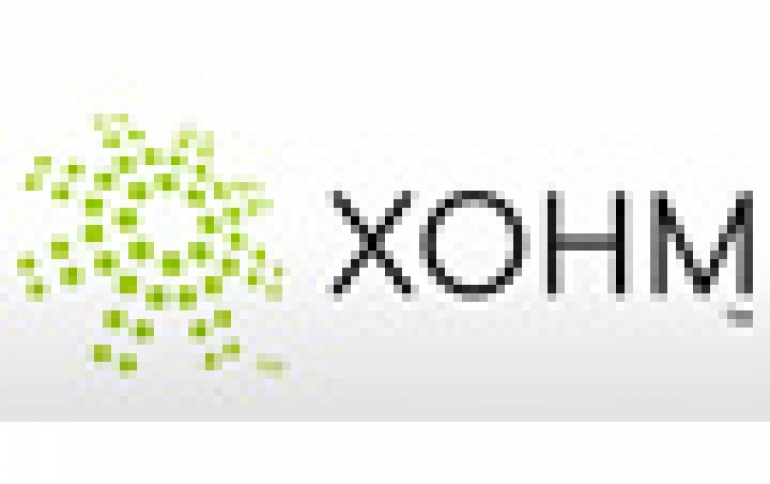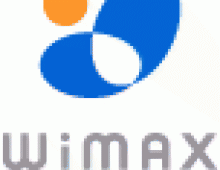
Sprint Establishes WiMax Network in Baltimore
Sprint Nextel opened its new wireless network to customers in Baltimore on Monday, offering Internet service for laptops for $45 per month.
This is the first commercial network in the U.S. to use the WiMax technology for mobile customers.
Compared to more mainstream cellular broadband technology, WiMax provides fast downloads and is cheap to deploy. Sprint is betting on the technology, championed by Intel, to give it a few years' head start before cellular broadband catches up.
Sprint's network carries the "Xohm" brand (pronounced "zoam") and provides download speeds of 2 to 4 mbps, slightly more than twice as fast as the current cellular broadband networks of Sprint, Verizon Wireless, T-Mobile USA and AT&T.
To use the network, customers need a $60 laptop card (XOHM-branded Samsung Express air cards) or an $80 modem (ZyXEL modems). Sprint expects additional devices such as a ZTE USB modem, Intel Centrino 2 WiMAX notebook PCs and the Nokia N810 WiMAX Edition to be available later this year.
With the home modem, Sprint will be competing not just with cellular broadband, but with fixed broadband services like DSL. It will charge $25 per month for home access for the first six months, then $35 per month. Special launch pricing includes a $50 "Pick 2 for Life" monthly service option covering two different WiMAX devices.
XOHM subscribers will be given free access to a customizable Web site, called MyXOHM, focusing primarily on local services and entertainment content, as well as providing security services, hosted storage and interactive communications. After choosing preferences, subscribers will have their content pushed to a customized and location-aware portal via small digestible widgets.
Xohm service will be activated by users online, much like the way people sign up for Wi-Fi access at hotels. In addition to the monthly plans, Sprint will offer a day pass for $10. No contracts are required. The plan for laptops costs $30 per month for the first six months.
The next cities to get Xohm will be Washington and Chicago, according to the Xohm Web site.
Sprint?s XOHM WiMAX network utilizes the 2.5 GHz spectrum holdings that were combined in the Sprint and Nextel merger to deploy next-generation technology. XOHM uses WiMAX infrastructure developed by Samsung and has worked with them in deployment and buildout of the Baltimore-area WiMAX network.
As announced earlier this year, Sprint expects to complete the combination of its XOHM WiMAX business assets with Clearwire to form a new company in the fourth quarter. This new company, to be called Clearwire, will continue to expedite the deployment of a nationwide mobile WiMAX network.
For additional information visit http://www.xohm.com/.
Compared to more mainstream cellular broadband technology, WiMax provides fast downloads and is cheap to deploy. Sprint is betting on the technology, championed by Intel, to give it a few years' head start before cellular broadband catches up.
Sprint's network carries the "Xohm" brand (pronounced "zoam") and provides download speeds of 2 to 4 mbps, slightly more than twice as fast as the current cellular broadband networks of Sprint, Verizon Wireless, T-Mobile USA and AT&T.
To use the network, customers need a $60 laptop card (XOHM-branded Samsung Express air cards) or an $80 modem (ZyXEL modems). Sprint expects additional devices such as a ZTE USB modem, Intel Centrino 2 WiMAX notebook PCs and the Nokia N810 WiMAX Edition to be available later this year.
With the home modem, Sprint will be competing not just with cellular broadband, but with fixed broadband services like DSL. It will charge $25 per month for home access for the first six months, then $35 per month. Special launch pricing includes a $50 "Pick 2 for Life" monthly service option covering two different WiMAX devices.
XOHM subscribers will be given free access to a customizable Web site, called MyXOHM, focusing primarily on local services and entertainment content, as well as providing security services, hosted storage and interactive communications. After choosing preferences, subscribers will have their content pushed to a customized and location-aware portal via small digestible widgets.
Xohm service will be activated by users online, much like the way people sign up for Wi-Fi access at hotels. In addition to the monthly plans, Sprint will offer a day pass for $10. No contracts are required. The plan for laptops costs $30 per month for the first six months.
The next cities to get Xohm will be Washington and Chicago, according to the Xohm Web site.
Sprint?s XOHM WiMAX network utilizes the 2.5 GHz spectrum holdings that were combined in the Sprint and Nextel merger to deploy next-generation technology. XOHM uses WiMAX infrastructure developed by Samsung and has worked with them in deployment and buildout of the Baltimore-area WiMAX network.
As announced earlier this year, Sprint expects to complete the combination of its XOHM WiMAX business assets with Clearwire to form a new company in the fourth quarter. This new company, to be called Clearwire, will continue to expedite the deployment of a nationwide mobile WiMAX network.
For additional information visit http://www.xohm.com/.



















